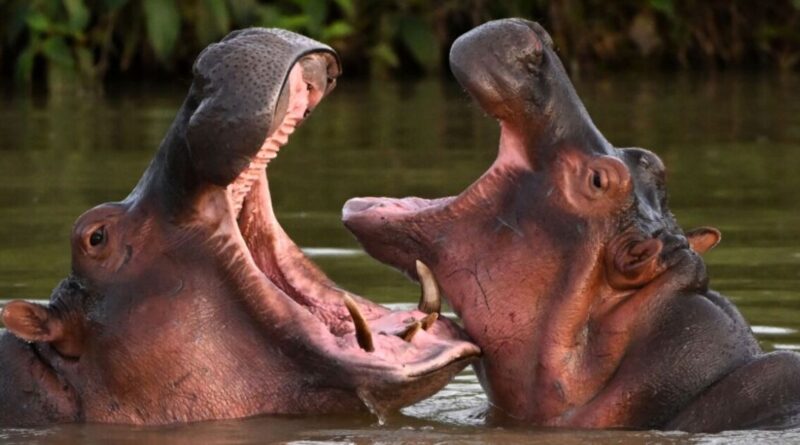The country nowhere near Africa that’s home to 169 hippos | World | News
Hippos are usually found in Africa’s lakes, rivers and swamps, but there is a population of the world’s third-largest mammal thought to total 169 in South America.
Native to sub-Saharan Africa, the barrel-shaped beasts that typically weigh 3.2 tons have established themselves in Colombia‘s Antioquia state.
Four hippos were brought to Colombia in the 1980s by drug lord Pablo Escobar, who smuggled them in for his private menagerie at his Hacienda Nápoles estate.
Numbers totalled 169 in a government count last year, cited by the Smithsonian magazine, though one biodiversity expert suggested the total could be 200.
Colombia’s hippo population could hit 1,400 by 2040, according to numbers cited by the same publication.
After Escobar was killed in a shoot-out with police in 1993, the animals were left free to roam and went on to populate the Magdalena River in Colombia.
Without natural predators in the country, Colombia’s hippos now number almost 200, despite efforts to sterilise them or move them to zoos overseas.
In September, the Administrative Court of Cundinamarca gave Colombia’s Environment Ministry three months to issue a directive over eradicating the species.
The court said measures to target the hippos should include “controlled hunting and sterilisation”, according to ABC.
Animal rights activists oppose hunting the hippos, but concerns about the safety of the local human population have tipped the balance against the hippos.
Hippos cause an estimated 500 human deaths per year, compared with 22 for lions and 1,000 for saltwater crocodiles, BBC Wildlife has previously reported.
Concerns over their impact on people in Colombia have fuelled moves to deal with the invasive species once and for all.
Plans to relocate the hippos, sterilise them or put them down in a humane way have all faltered, according to reports.
Colombia’s hippos have also been posing problems for local wildlife, as they compete with other mammals, such as otters and manatees, for food and living space.
Ecologist Rebecca Lewison of San Diego State University’s Coastal and Marine Institute, told the Smithsonian: “Colombia has great biodiversity and this is not a system that has evolved to support a mega-herbivore.”





